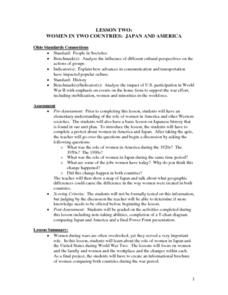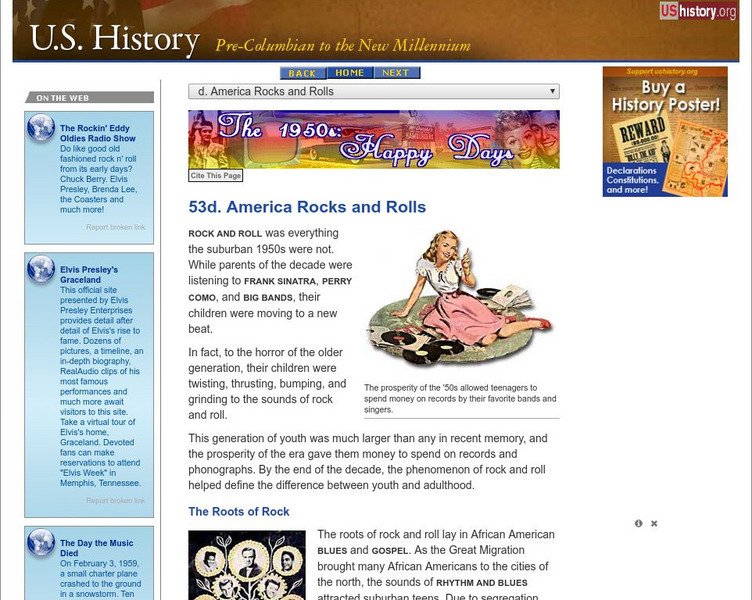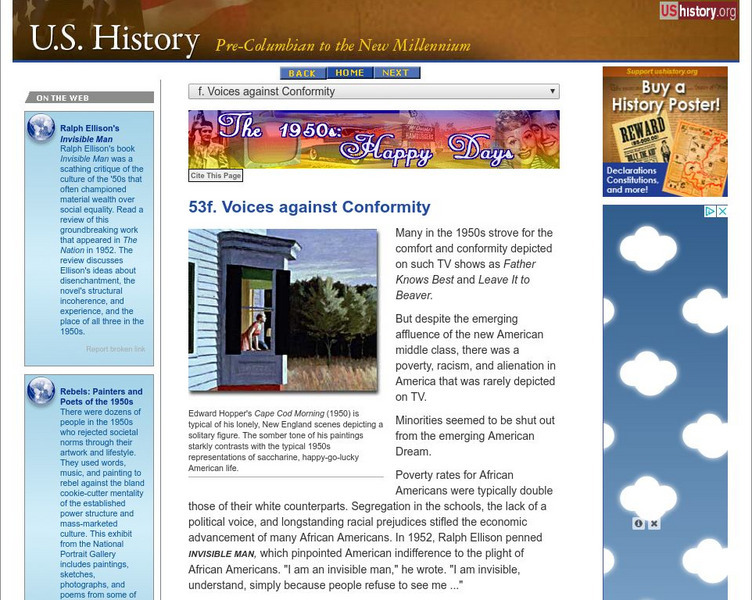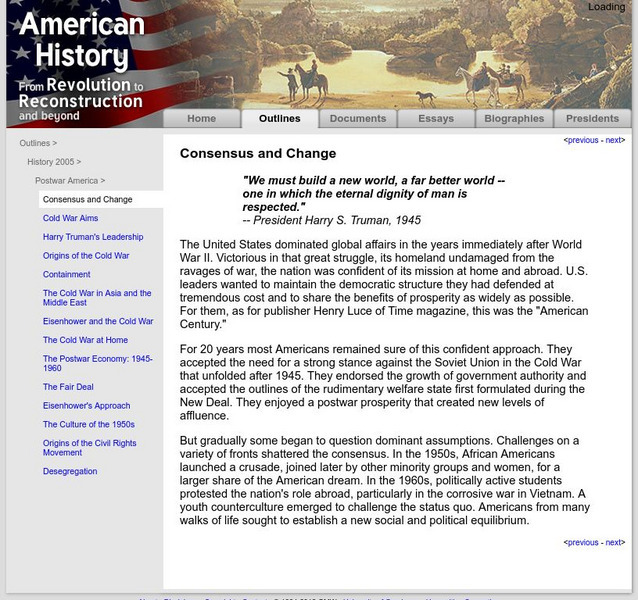Annenberg Foundation
Becoming Visible
The television and interstate highways both came of age in 1950s America. Scholars use film, text, and discussion to explore how these and other cultural icons shaped the literature of the time. Pupils also create a family history...
Curated OER
Rock n' Rollin in the '50s
Students explore the culture of the United States in the 1950's. In this history lesson, students research culture in the 1950's, with a focus on fashion, music, television, automobiles, etc., then work in groups to create a...
Curated OER
Consumer Culture in the 1950s: New Shopping Centers and Advertising trends
Learners examine the effect of suburbs on American cities. They identify the changes the cities had to face after people moved elsewhere. Using primary source ads, they compare them with contemporary ads and discuss what can be found out...
Curated OER
Breaking Barriers
Students investigate racism in the 20th century by exploring U.S. History. In this Civil Rights lesson, students review the history of slavery, the Civil War and the fight for equality in the mid 1900's. Students complete Civil Rights...
Curated OER
Baby Boom and the Culture of the 1950's
Students study the ripple effect of the baby boom generation on history and on their lives today. They discover how the rules and conformity of the 1950's set the stage for the rebellious, anti-establishment sixties. They study the...
Curated OER
Social Life in the 1950's and Domestic Politics and Policy
Eleventh graders examine the cultural mood and politics of the 1950's in the United States. They read a section of their text and take notes, view a clip of the movie "Pleasantville" and discuss societal roles in the 1950's, and listen...
Curated OER
True Music
Eleventh graders research a given decade in US History. In this American History lesson plan, 11th graders interview a person who lived during the decade to gain a personal perspective on it. Students rehearse and present their...
Curated OER
Women in Two Countries: Japan and America
Students explore the role of women in Japan and the United States during World War Two. They focus on women and the family and women and the workplace and the changes within each. Students create an informational brochure of women...
Curated OER
Paul Robeson: 20th-Century Renaissance Man, Hero In Any Century
Students explore several themes relevant to the life of Paul Robeson and the social, artistic, & political realities of the first half of the 20th century, identify and interview heroes in their communities, and publish profiles on...
Curated OER
How the Vietnam War Transformed California?
Eleventh graders examine the effect of the Vietnam War on California. They work together to research social movements that occured during this period and its outcomes. They also interview veterans to better understand the impact of the...
Curated OER
Before Rosa Parks: Upper Grades Activity: Frances Watkins Harper
Students analyze the rhetorical strategies Frances Watkins Harper used, such as tone, emotional appeal and descriptive language
OpenStax
Open Stax: u.s. History: 29.4 Challenging the Status Quo
Page form U.S. History e-book focusses on the culture of the 1960s and the rise of protest organizations challenging the status quo during that decade. Site contains questions for review, critical thinking, and glossary.
Independence Hall Association
U.s. History: America Rocks and Rolls
Read a brief history of rock and roll and its roots. See why this form of music shook the establishment and shattered the idea of conformity.
Independence Hall Association
U.s. History: Land of Television
The advent of increased television programming helped create a national popular culture. Read about the many kinds of television programs offered in the 1950s.
Independence Hall Association
U.s. History: Voices Against Conformity
The decade of the 1950s was kown for conformity. There was an undercurrent of rebellion, especially among younger Americans. Read about the Beat Generation, alternative literature, rebellion in art, and treatment of those who were not...
University of Groningen
American History: Outlines: Consensus and Change
Brief illustration of the changes in U.S. domestic and foreign policy that occurred following WWII.

















